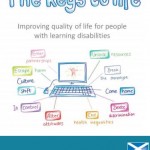
In 2000, the Scottish Executive published ‘The same as you?’ a ten year programme to meet the needs of people with learning disabilities in Scotland. Following a two year review, last year they published a new ten year strategy, known as ‘The keys to life – Improving Quality of Life for People with Learning Disabilities’, [read the full story…]










